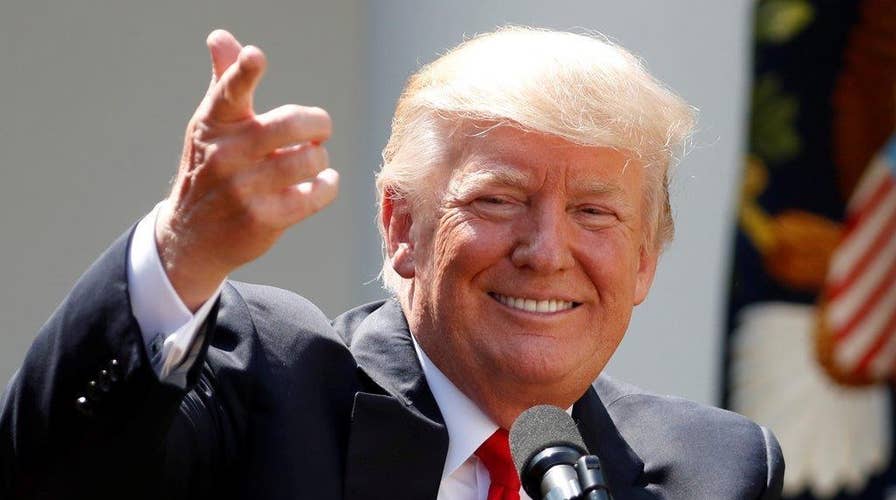Trump project in Moscow under new scrutiny in Russia probe
An attorney for the president points out the tower project never got beyond a 'letter of intent' and no business deal was signed with Russia entities; John Roberts has the roundup for 'Special Report'
Deputy Attorney General Rod Rosenstein defended against criticism of his handling of the amorphous “Russia investigation” by saying that the Department of Justice “doesn’t engage in fishing expeditions.” Yet, his clumsy management of this matter is the reason why many Americans are concerned that the investigation lacks focus and will veer into unrelated matters, thereby extending the probe far into the future and hampering the ability of the Trump administration to attend to the people’s business.
Rosenstein’s order appointing Robert Mueller to serve as special counsel failed to enumerate a crime to be investigated; instead, the order cited then-FBI Director James Comey’s March testimony identifying the existence of a counterintelligence investigation focusing on Russia, not a criminal investigation targeting members of the Trump administration. The order was defective because DOJ regulations make the existence of a criminal investigation a condition precedent to the appointment of a special counsel. Moreover, the order was so vague that it places little in the way of substantive limits on the scope or duration of the investigation.
The Rosenstein order is effectively an invitation to conduct a fishing expedition. And news reports have suggested that the investigation is veering into territory that has little, if any, relationship to the question of whether anyone committed crimes while in cahoots with the Russians.
Congress should use the upcoming appropriations bills to establish clear limits to the scope and duration of the special counsel investigation.
Now, in recent appearance on Fox News Sunday, Rosenstein assures us that “Bob Mueller understands and [he] understands the specific scope of the investigation and so, it’s not a fishing expedition.”
Given the failure to issue a clear appointing order, Congress should not simply take Rosenstein’s word for this. Instead, Congress should use the upcoming appropriations bills to establish clear limits to the scope and duration of the special counsel investigation.
Specifically, Congress should deny funding for the investigation of any matters that precede the commencement of the 2016 presidential campaign. This will prevent the investigation from going off the rails and from becoming a roving commission to simply “find something” on members of the Trump administration, including the president himself.
In addition, Congress should terminate funding for the investigation at a date certain – say, 180 days from the date of enactment – so that the Trump administration and the Congress can move on to dealing with the key issues facing the American people.
The notion that the Trump campaign illegally “colluded” with Russian government agents has always seemed to be more a matter of wishful thinking by the media than something based on hard evidence. Imposing a deadline will force the special counsel to put up or shut up: if evidence of criminal activity has not surfaced after what will be nearly two years of investigation (including the pre-special counsel investigation conducted by the FBI), then this investigatory cloud hovering over the Trump administration should be removed.
There was never a clear basis from which to establish a special counsel in the first place, but we are where we are and it is in the public’s interest that this investigation be focused in scope and limited in duration.
The drag that such an investigation places on an administration means that the business of governing is necessarily hindered. For his part, President Trump is reviled by the Washington ruling class and the appointment of a special counsel is a way for the “Swamp” to seek his presidency’s destruction -- through investigative paralysis at least, with no evidence of wrongdoing uncovered. The inexplicable decision of Special Counsel Mueller to stock his office with Democratic partisans has underscored concerns along these lines.
Congress can and should use its power of the purse to impose guardrails on the investigation. The congressional corollary to the Rosenstein admonition that the DOJ doesn’t conduct fishing expeditions should be that the Congress will not fund fishing expeditions.

